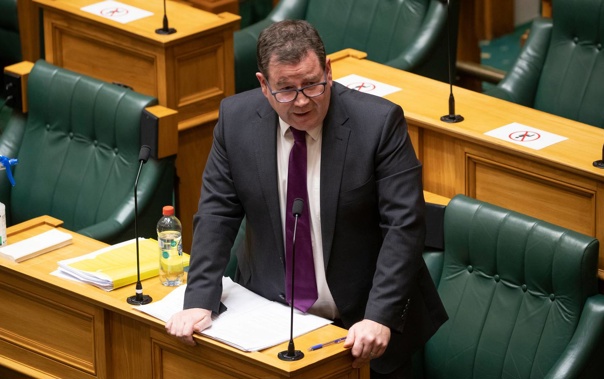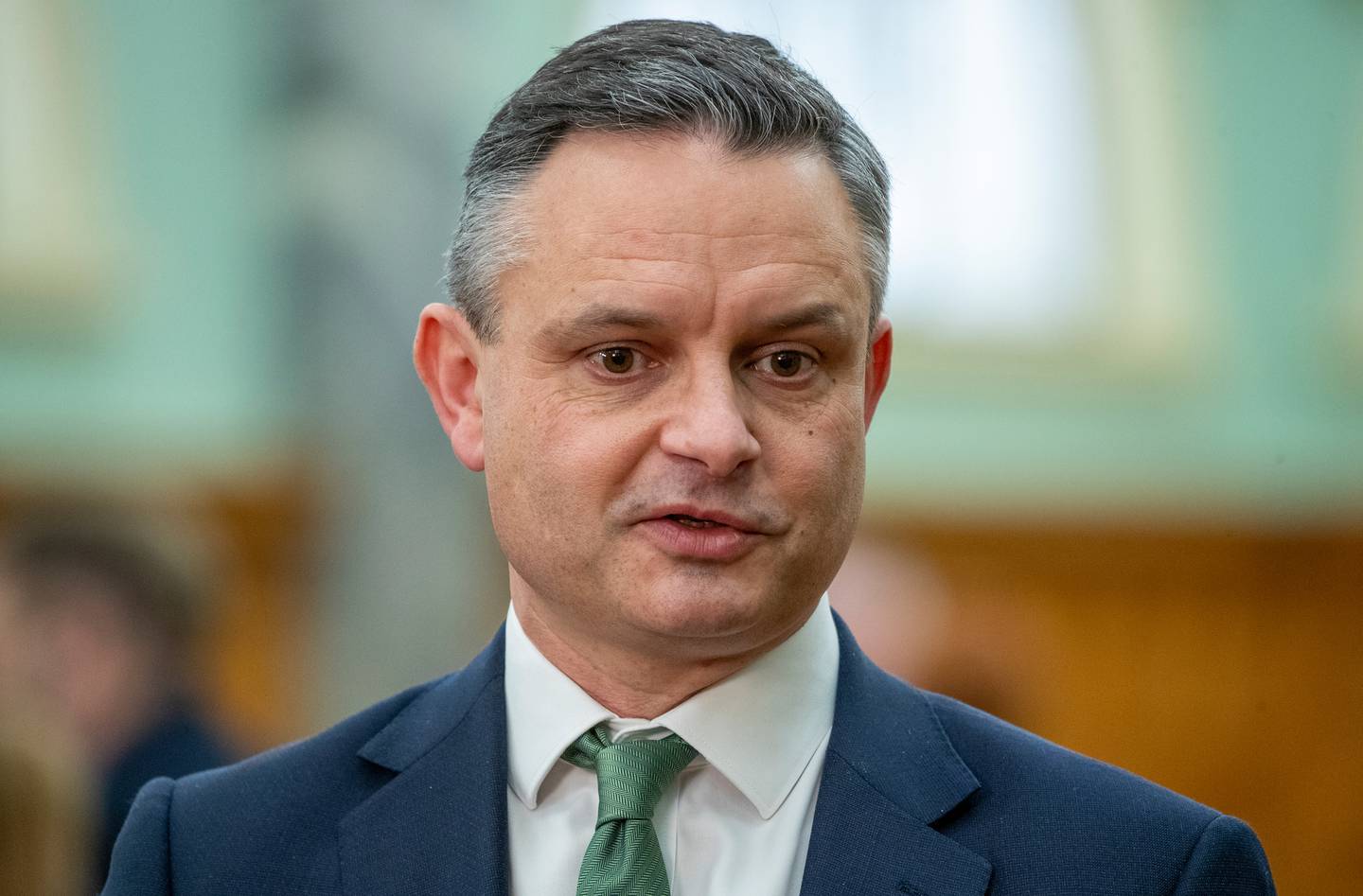
Christmas has come early for Finance Minister Grant Robertson, who unwrapped an early present from Treasury on Wednesday in the form of forecasts showing low unemployment, increased tax revenue and booming economic growth over the next five years.
After nearly two years of gloomy Covid forecasts, Treasury now thinks unemployment will fall as low as 3.1per cent next year, while the economy will grow at 4.9 per cent in 2023, and about 2.3 per cent a year thereafter. House prices will continue to rise, before briefly falling in 2023 (although staying higher than now overall).
All that economic growth means a higher tax take.
Next year, Treasury is expected to pull in nearly $10 billion more revenue than it expected to raise back at the Budget in 2022.
This means the Government plans to return to surplus in 2024, three years earlier than forecast - by 2026. However, the cost of Covid lockdowns means there is an expected deficit of $20.8b for 2021/22.

Climate Change Minister James Shaw will get a climate change fund at the next budget. Photo / Mark Mitchell
Treasury plans to post an $8.2b surplus by 2026.
Government debt will fall to just 30.2 per cent of GDP in 2026.
In 2025, net debt is expected to be $150b - nearly $50b lower in 2025 than was expected at the May Budget.
Robertson is using some of this increased revenue to fund enormous increases in spending.
The Government's operating allowance - which is the amount of new spending the Government plans to do in a given year - has been increased to $6 billion, possibly the highest operating allowance in history.
Just a year ago, Labour promised an expected $2.6b allowance for 2022 in its election manifesto (National had promised an operating allowance of less than $2 billion).
Robertson said this was a "one off" increase to fund some of the big reforms in Budget 2022, particularly the reform of the health system.
"Budget 2022 will make significant investments in establishing the new entities that will replace District Health Boards. Managing rising health costs will be a major challenge in coming decades - we will ensure the new entities have a solid base for tackling that challenge," Robertson said.
"The Budget will also begin a multi-year approach to funding the health sector. Initially this will be a two year funding path, then from 2024 we will move to a three year funding plan in line with New Zealand's first Health Plan," Robertson said.

Finance Minister Grant Robertson has given himself a $6b budget. Photo / Mark Mitchell
He said he was not currently considering tax cuts to account for the fact more New Zealanders are likely to find themselves in higher tax brackets as their wages increase.
On top of this, Robertson announced details of the Government's climate funding reforms.
As promised, the Government is putting money raised from the emissions trading scheme (ETS) into climate change initiatives.
That money will be funnelled into the Climate Emergency Response Fund (CERF), which will receive $4.5b from the ETS over the next four years. The Government said "more funding may be needed" if high-value initiatives warrant it.
Inflation and house prices
There is a gloomier side to the forecasts: inflation is expected to hit 5.1 per cent next year, falling to 3.1 per cent the next year, and staying above the Reserve Bank's targeted mid-point of 2 per cent out to 2026 (although within the bank's range of 1-3 per cent).
"There is no doubt that this will put pressure on the cost of living, especially for low income households," Robertson said.
Wage growth is expected to be 4.1 per cent next year, 1 point lower than the inflation rate meaning wages will not rise with inflation.
However, each subsequent year, wage growth is more than one percentage point above the CPI inflation rate.
House price growth is expected to slow, and briefly reverse. Growth is expected to continue through all of next year, however it will reverse in 2023, seeing house prices falling that year, before increasing again.
The expected fall is to be slight, leaving prices higher than now over the forecast period. Treasury is laying the blame for the drops at the higher official cash rate, used by the Reserve Bank to control inflation.
Miscellaneous problems
Treasury uses its twice annual forecasts to have a look at some of the financial challenges the country might face in the next few years.
New challenges include the risk that costs for immunisation programmes will increase in 2022, thanks to many viruses going into hibernation as a result of lockdowns and closed borders.
"With the reopening of the borders, viruses such as the flu virus that have been largely absent for the past two years are likely to re-enter New Zealand and may have more significant effects than they have had previously.
"There is a risk that the funding required for enhanced immunisation programmes will exceed what is provided for in the fiscal forecasts," Treasury warned.
Legal aid has been identified as a fiscal risk.
Entitlement to legal aid is mandated by legislation. The cost of legal aid is driven by volume and complexity of cases.
"The average cost per case has increased as a result of growth in more serious cases," Treasury said.
There is a fear legal aid costs will tick up as cases become more complex - or if there is an increase in the number of cases funded.
Climate change risks have been added to the forecasts in the form of adverse weather events putting pressure on the welfare system, and the cost of the national adaptation plan.
Treasury is also concerned that fuel taxes and road user charges might need to be put up by Waka Kotahi NZ Transport Agency to manage cost pressures in the transport programme. Treasury does not think this will be necessary before 2024.
Existing fiscal risks, like the cost of the Government's reforms in broadcasting, concerns around cost increases and funding challenges relating to the $6.8b of transport projects of the NZ Upgrade Programme and Let's Get Wellington Moving, have not been changed.
Treasury is still worried that Auckland's City Rail link will go over budget thanks to Covid lockdowns and increased material costs, forcing the Crown to fund more than the $2.2b currently pencilled in for its contribution.
Despite film productions leaving New Zealand, Treasury is still concerned that film subsidies are a risk to the Government's fiscal forecasts in the future.
The Government expected to issue $20b of bonds next year - down $10b from what was published at the Budget.
In 2022/23 and 2024/25 bond issuance programmes have been decreased by $7b each year to $18b.
Take your Radio, Podcasts and Music with you









